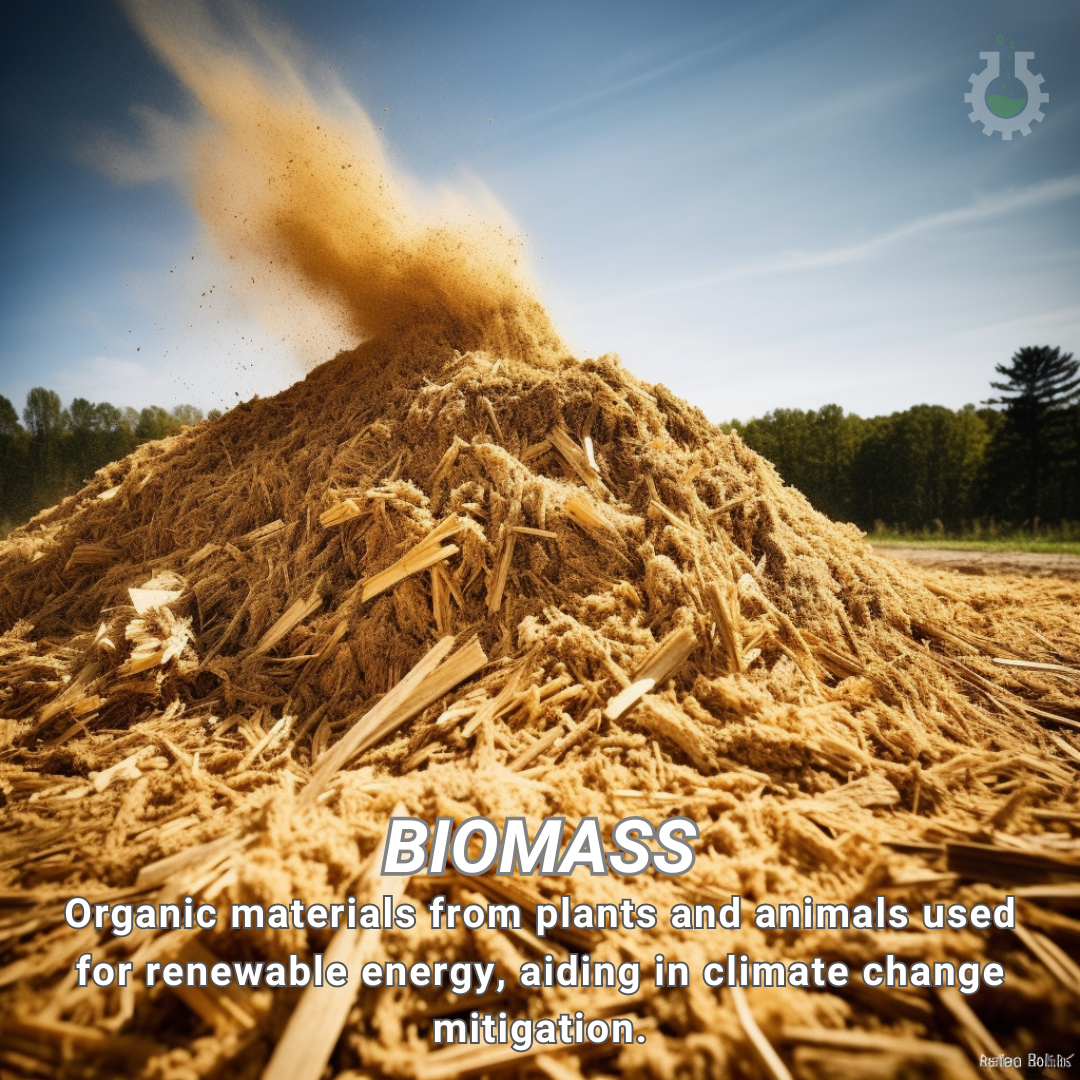January 18, 2024
Climate Change Poster Collection of the Day – Biomass
Book a Demo
Today’s Climate Change Poster Collection highlights Biomass, a renewable energy source, is a versatile medium that can be converted directly into biofuels such as ethanol and biodiesel. These biofuels are essential in meeting transportation fuel demands, offering a sustainable alternative to petroleum-based fuels.
The Bioenergy Technologies Office (BETO) is playing a significant role in this field by partnering with the industry to create next-generation biofuels. BETO’s focus is centered on developing hydrocarbon biofuels that can replace petroleum. They are exploring waste, cellulosic biomass, and even algae as possible sources for these advanced biofuels.
Ethanol is a prominent example of a biofuel derived from plant materials like biomass. It has the potential to significantly enhance octane levels in gasoline and reduce harmful emissions. The production process of ethanol involves extracting starches and sugars from plants. However, ongoing research is also exploring the possibility of using cellulose and hemicellulose, broadening the scope of biomass utilization.
On the other hand, biodiesel is another renewable, clean-burning fuel produced from sources such as vegetable oils and animal fats. It can be readily mixed with petroleum diesel for use in diesel engines, offering a more environmentally friendly option for vehicle fuel.
The production of these advanced biofuels encompasses several steps. This includes the high or low-temperature deconstruction of biomass and the upgrading of intermediates into final products. The conversion of biomass into fuel or bioproducts can be achieved through thermal, biological, or chemical means during the production process.
Biofuels present a sustainable solution for the fuel industry, reducing reliance on non-renewable petroleum sources. This shift towards renewable energy not only ensures a steady fuel supply but also aids in preserving the environment. By harnessing the potential of biomass and other renewable sources, the industry can significantly reduce its carbon footprint, contributing to global efforts in combating climate change.
The potential of biomass in the production of biofuels like ethanol and biodiesel offers promising prospects for the fuel industry. With ongoing research and developments in this field, the use of biofuels could become a mainstream solution, paving the way for a greener, more sustainable future.
Discover an inspiring collection of climate change poster.



